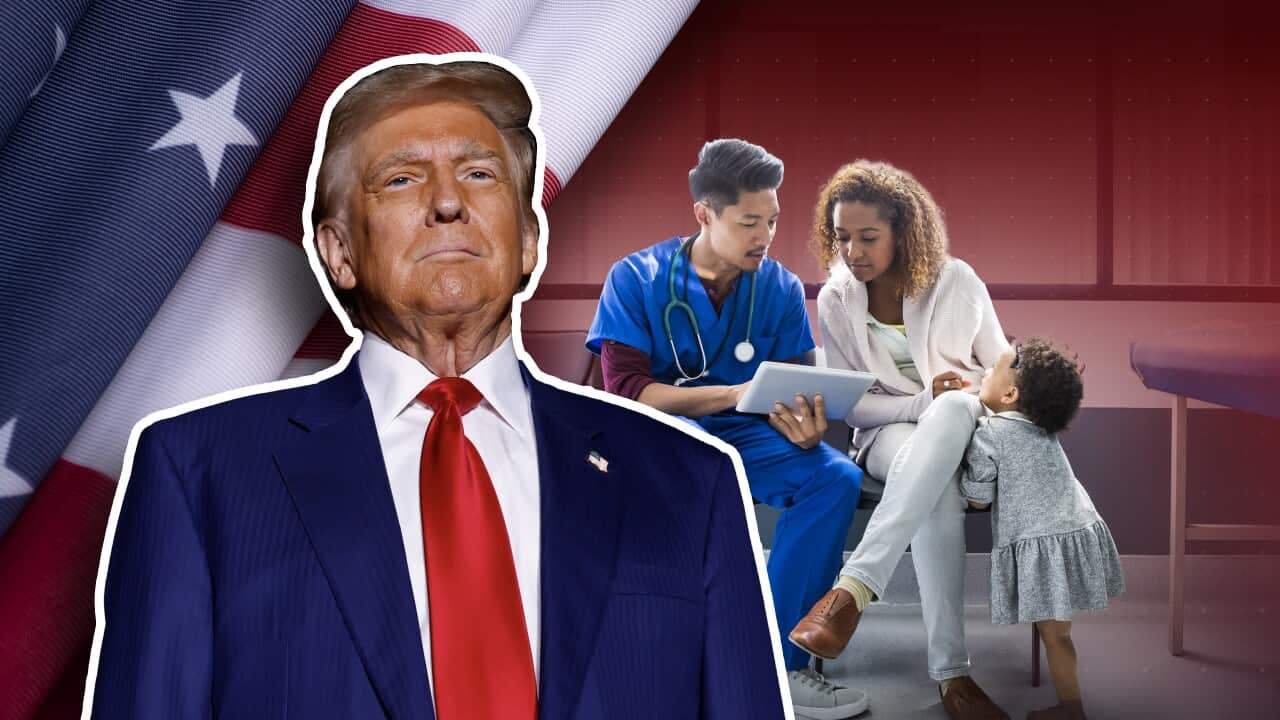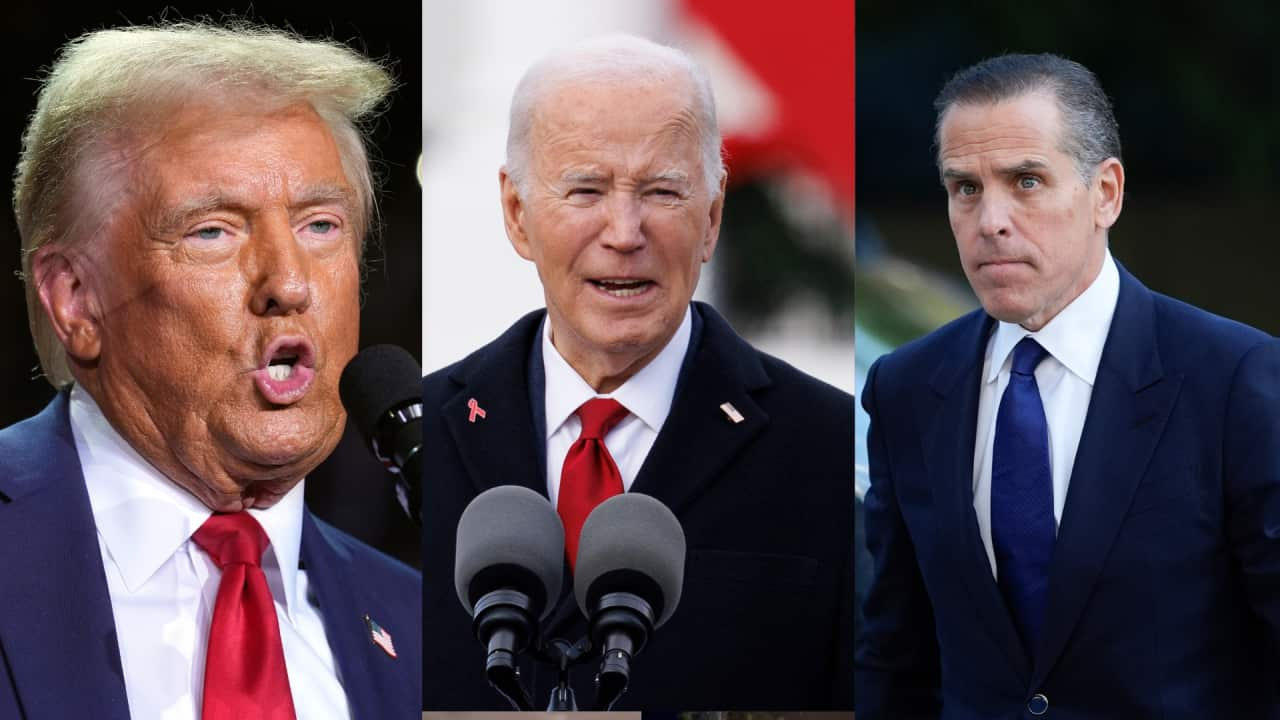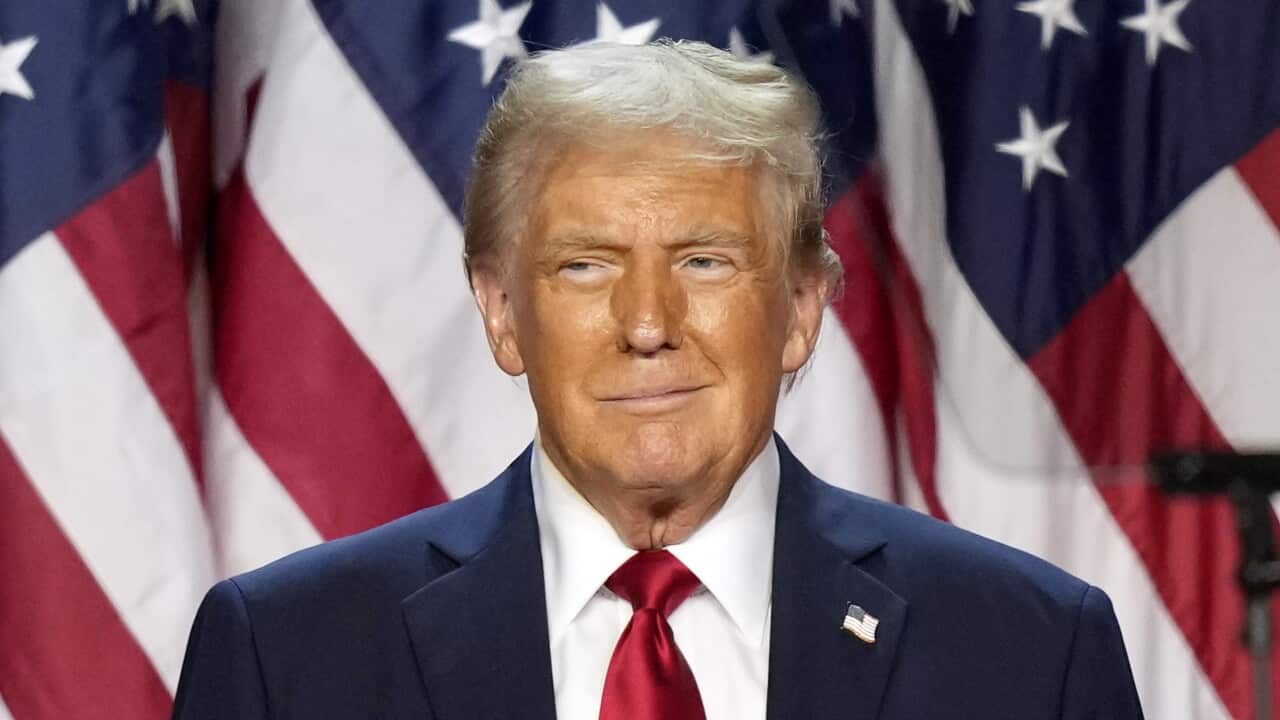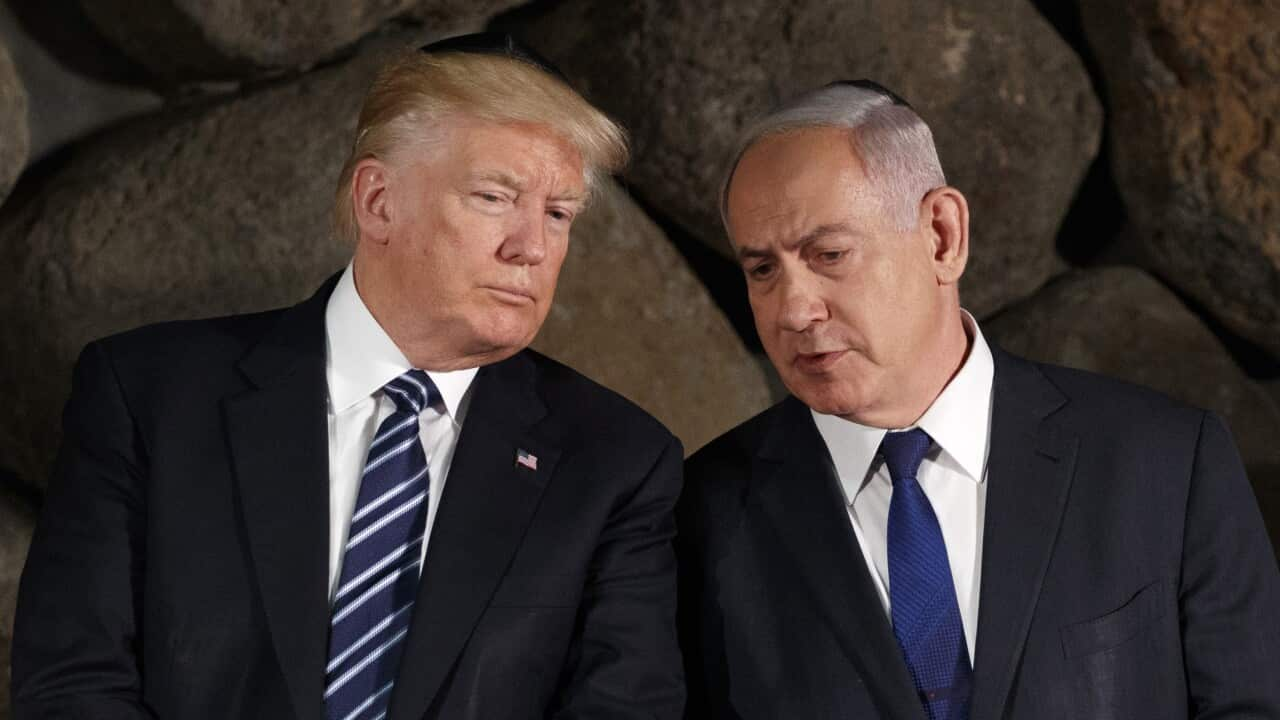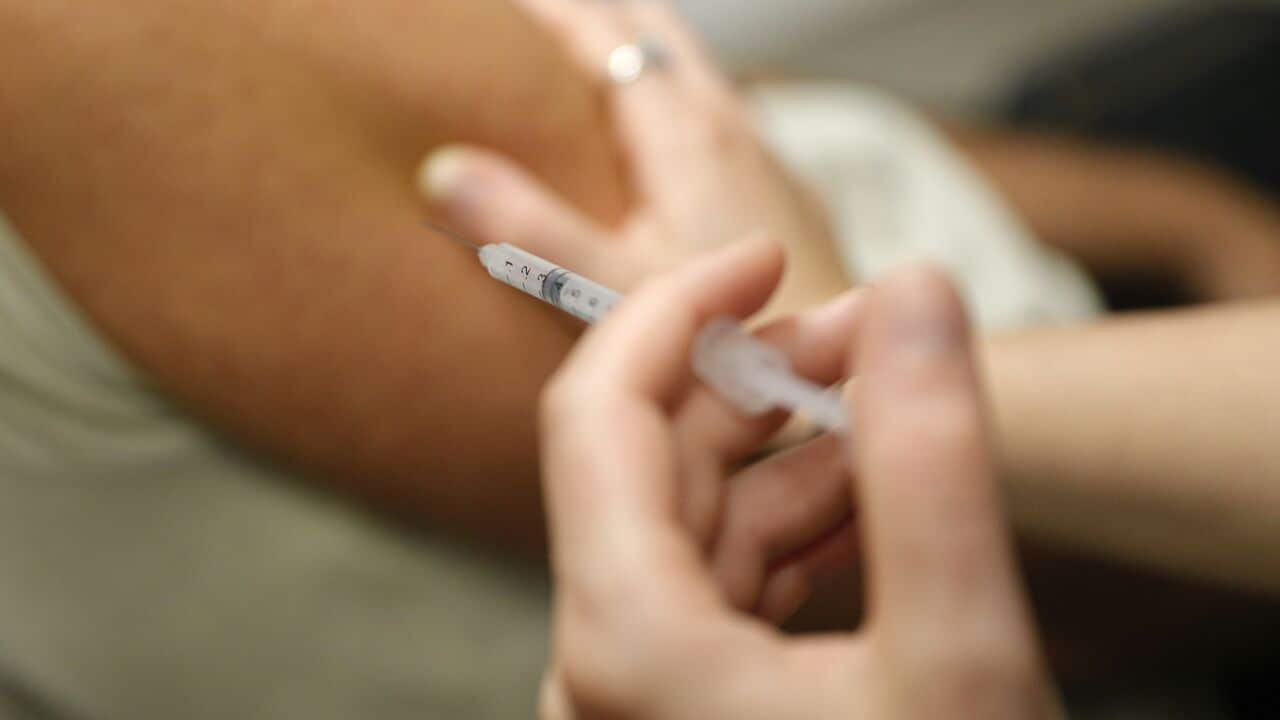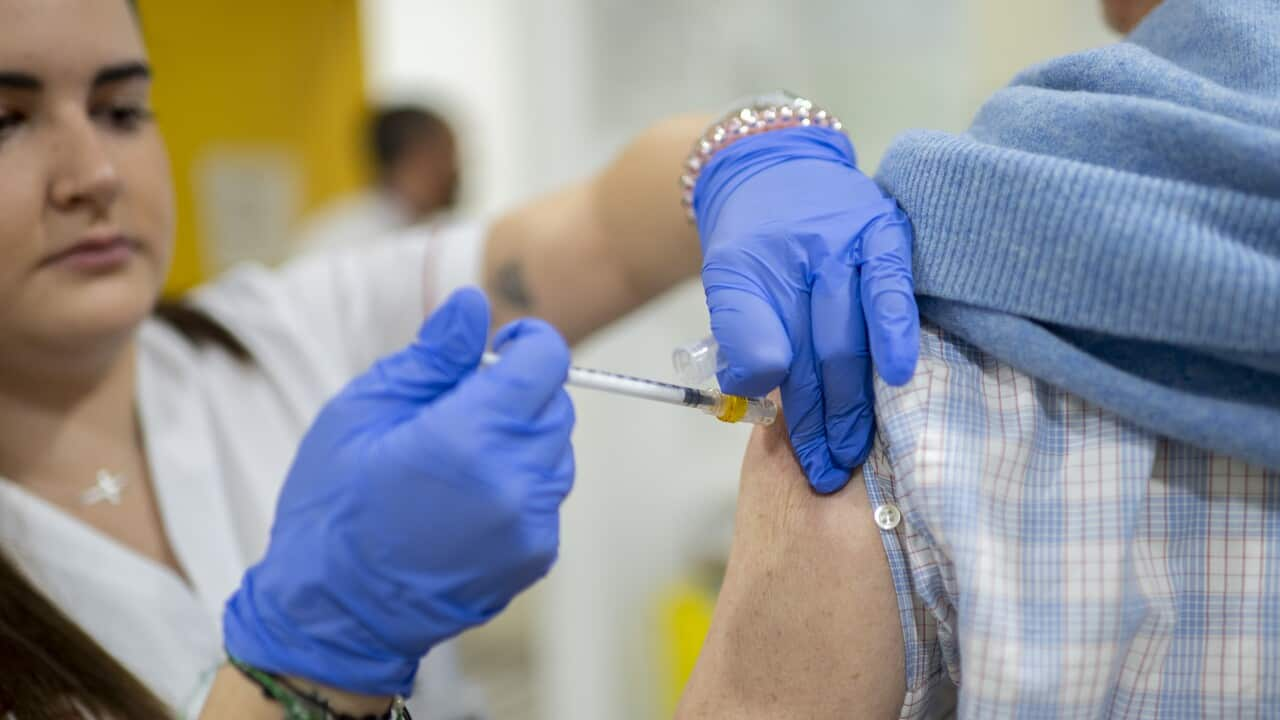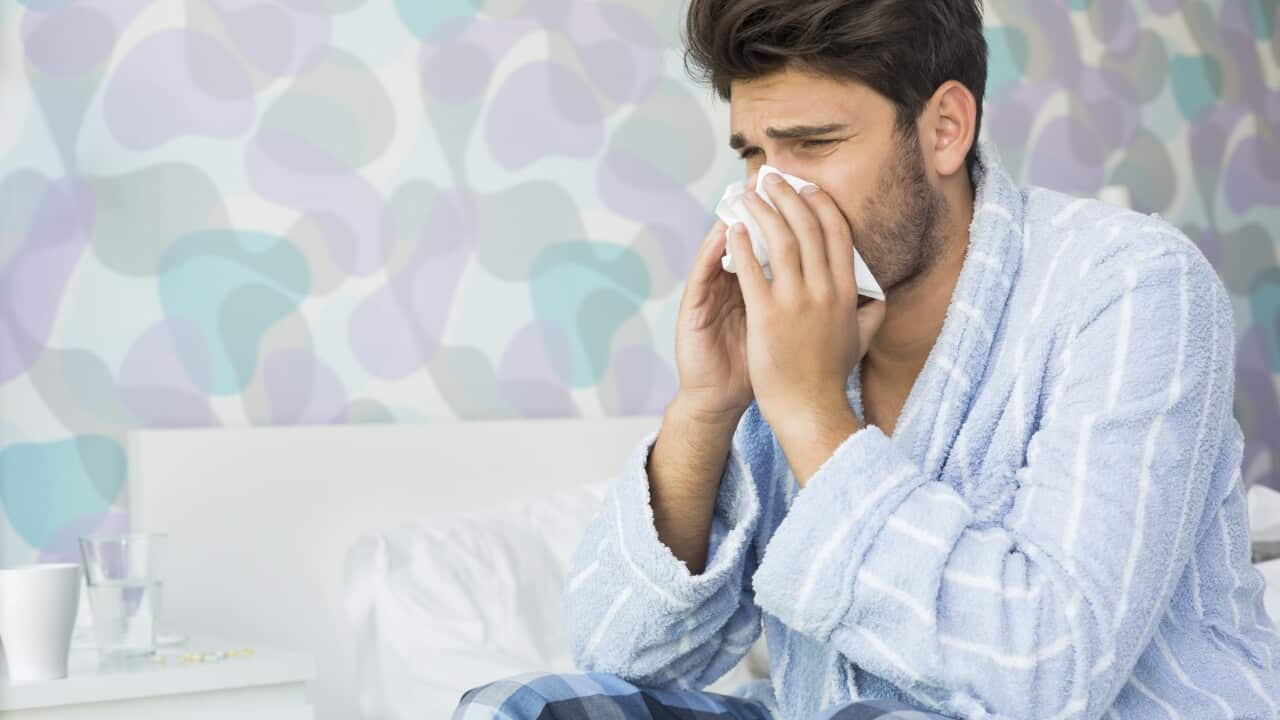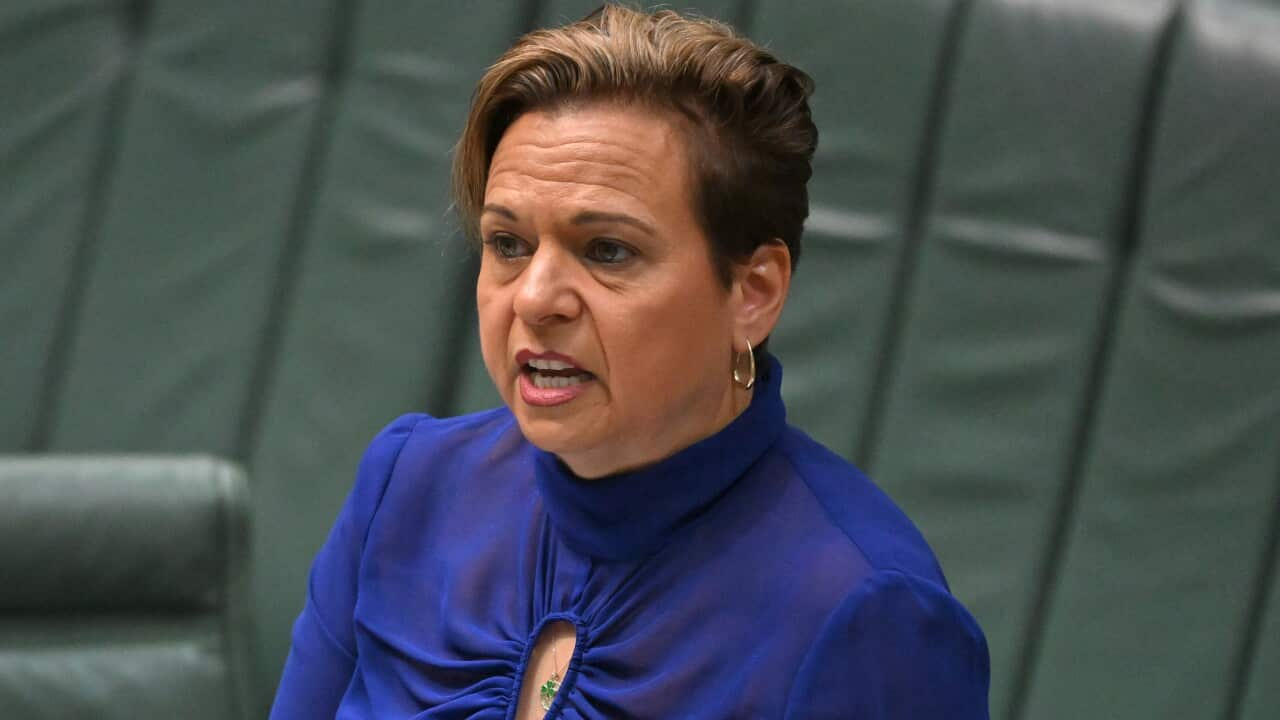Robert F Kennedy Jr, a controversial figure who has promoted claims about the potential dangers of vaccines, may take a top health role in
This has raised concerns among experts that his messaging could energise anti-vaccine sentiment in Australia.
Kennedy, who has been vocal about medical freedom and expressed scepticism about what he calls "unsafe vaccines", was handpicked by Trump in November to be the secretary of the Department of Health and Human Services (DHHS), the US' top health agency.
In an interview published this week, Trump said he will be talking to Kennedy about ending childhood vaccination programs.
When asked if the discussion could result in his administration getting rid of some vaccinations, Trump said: "It could if I think it's dangerous, if I think they are not beneficial, but I don't think it's going to be very controversial in the end."
Announcing Kennedy's nomination November, Trump said "the industrial food complex and drug companies" had engaged in "deception, misinformation, and disinformation when it comes to public health".
"Mr. Kennedy will restore these agencies to the traditions of Gold Standard Scientific Research, and beacons of transparency, to end the chronic disease epidemic, and to make America great and healthy again," Trump said.
Kennedy promoted the slogan — Make America Healthy Again — after he dropped out of the presidential race as an independent in August and endorsed Trump in exchange for a role in the Republican's administration.
Dr Will Grant, a lecturer in scientific communication at the Australian National University, told SBS News Kennedy's nomination is alarming.
"I think there has never someone with such fringe science beliefs ... and pseudoscience beliefs leading a key science-related, health-related area," he said.
Kennedy's history of anti-vaccine messaging
While Kennedy has disputed that he is "anti-vaccine" and denied that he plans to "take vaccines away" in recent interviews, he has a long history of spreading doubts about their safety and efficacy.
He is the founder of the anti-vaccine organisation Children's Health Defense, where he has served as chairman and chief litigation counsel, but is now on leave from these positions.

After dropping out of the presidential race as an independent in August, Robert F Kennedy Jr endorsed Donald Trump in exchange for a role in his administration. Source: AAP / Alex Brandon/AP
Associate Professor Helen Petousis-Harris, a vaccinologist from the University of Auckland, told SBS News Kennedy has been in the anti-vaccine space "for the best part of 30 years" and the Children's Health Defense is a "long-term disinformation machine".
"Robert Kennedy Jr. and Children's Health Defense is quite central to the whole anti-vaccine landscape," she said.
In 2015, Kennedy apologised for comparing the use of vaccines in children to the "Holocaust" after linking vaccines to a rise in autism diagnoses.
In November, outgoing US ambassador to Australia, Caroline Kennedy, said her cousin's views on vaccines are "dangerous" and at odds with most Americans.
"I grew up with him, so I've known all this for a long time. Others are just getting to know him," she said at the National Press Club in Canberra.
US media outlets have also reported this week that a lawyer closely associated with Kennedy has petitioned the US Food and Drug Administration to "withdraw or suspend" its approval of the polio vaccine.
Aaron Siri, who represented Kennedy during his presidential campaign and is helping him pick federal health officials for the incoming administration, filed the petition in 2022 questioning the safety of the polio vaccine.
The 2019 measles outbreak in Samoa
Kennedy and the Children's Health Defense were also associated with allegedly spreading vaccine misinformation in Samoa, which led to a deadly outbreak of measles in 2019.
In 2018, doubts about vaccines had intensified in the Pacific Island nation following medical errors that led to the deaths of two babies when measles, mumps and rubella vaccines were mixed with expired muscle relaxant instead of water.
Measles is one of the world's most contagious viral diseases, and around 10 per cent of cases involve complications, ranging from fever to rash, pneumonia and (more rarely) acute encephalitis.
Vaccine rates halved following the error, and Petousis-Harris said Kennedy and his organisation stoked the unease by posting misinformation questioning the safety of vaccines and forming connections with local anti-vaccine advocates.
A subsequent measles outbreak in 2019 caused over 1,868 hospitalisations and 83 deaths, including one family that lost three children under four years old to the virus.
"A lot of misinformation was shared on social media, which Samoans use a lot, and of course [Kennedy] is the top of the food chain in that space, a lot of stuff originates from him and his networks," Petousis-Harris said.
According to The Washington Post, Kennedy also wrote to the Samoan government requesting the country's health ministry determine "if the outbreak was caused by inadequate vaccine coverage or alternatively, by a defective vaccine".
Kennedy has denied spreading vaccine misinformation in Samoa. In an interview for the 2023 documentary Shot in the Arm, Kennedy claims he "never told anybody not to vaccinate" in the island nation.
Kennedy's claims on COVID-19 vaccines
Kennedy published multiple social media posts questioning the safety of COVID-19 vaccines throughout the pandemic, claiming they posed risks to pregnant women and suggesting that the death of baseball legend Hank Aaron was part of a "wave of suspicious deaths" linked to the vaccines.
He was named in the 'Disinformation Dozen' by the Center for Countering Digital Hate (CCDH), a British-American non-profit focused on combating the spread of digital misinformation and hate.
The CCDH identified these people as the most influential anti-vaccination proponents during the COVID-19 pandemic. They each had large numbers of followers online and produced high volumes of anti-vaccine content.
Analysis of 812,000 Facebook and Twitter posts found that between 1 February and 12 March 2021, 65 per cent of anti-vaccine content was linked to a member of the Disinformation Dozen.
Grant said anti-vaccine messaging was easy to spread during the pandemic because of people's underlying fears about the newly-developed vaccines.
"We were all globally asked to take vaccines really quite quickly after the development," he said.
"I absolutely think we did the right thing, but that required a different form of communication to what we might normally do with vaccines."
What Kennedy's nomination could mean for Australian anti-vaccine movement
Petousis-Harris said Trump's nomination of Kennedy "completely validates" the anti-vaccine movement and "gives people permission to be louder, more vitriolic and more convinced in their right to make threats".
Grant said the world has seen a steady growth in anti-vaccine rhetoric in the past two decades, and Kennedy "will be another marker in that journey".
A report published earlier this year found an increase from 2017 to 2023 in the number of parents in Australia who believed children receive too many vaccines, parents who believed vaccines cause autism or that vaccine ingredients cause harm.
"I think we, in the vaccination, public health-oriented community and governments alongside us, absolutely need to maintain a positive campaign in the community about the benefits of vaccination," Grant said.
Kennedy's potential appointment to the DHHS would require Senate confirmation, which could be challenging due to his controversial views.
Earlier this week, 77 Nobel Prize laureates wrote an open letter to the US Senate opposing Kennedy's nomination to the DHHS, saying it would put the "public's health in jeopardy" and "undermine America's global leadership in the health sciences".
However, Petousis-Harris said his influence on the anti-vaccine movement in Australia may not depend solely on this confirmation, as his influence is already widespread.
She said she is concerned about the real-world consequences of Kennedy's rhetoric in the coming months and years.
"I think we can predict what will happen because it's happened on smaller scales many times in history, and this time it's on a more global scale. Essentially, people lose trust," Petousis-Harris said.
"We know what happens when we don't use our vaccines, we get diseases back again. It's as simple as that, really."
— With additional reporting from Reuters.


